Since many people became familiar with OpenWrt relatively late, there is a common misconception that OpenWrt is synonymous with bypassing restrictions or with bypass routers.However, as a long-time user for over a decade, I have always relied on OpenWrt as my sole router at home.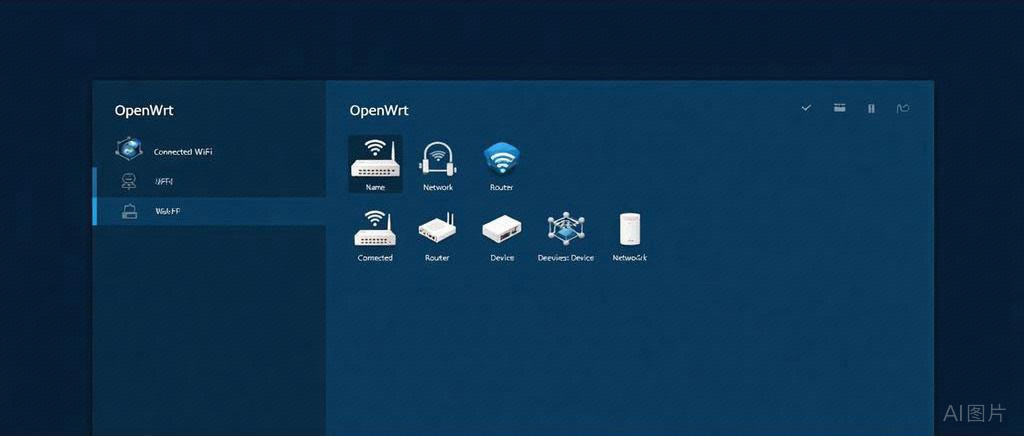 Today, we will share a feature that typically only appears in enterprise-level systems, which is application control. Let’s first look at the supported features before proceeding with the installation step by step. I believe this is particularly helpful for controlling children who are addicted to the internet. This is the free version, but you can also purchase the paid version that can identify more applications.
Today, we will share a feature that typically only appears in enterprise-level systems, which is application control. Let’s first look at the supported features before proceeding with the installation step by step. I believe this is particularly helpful for controlling children who are addicted to the internet. This is the free version, but you can also purchase the paid version that can identify more applications.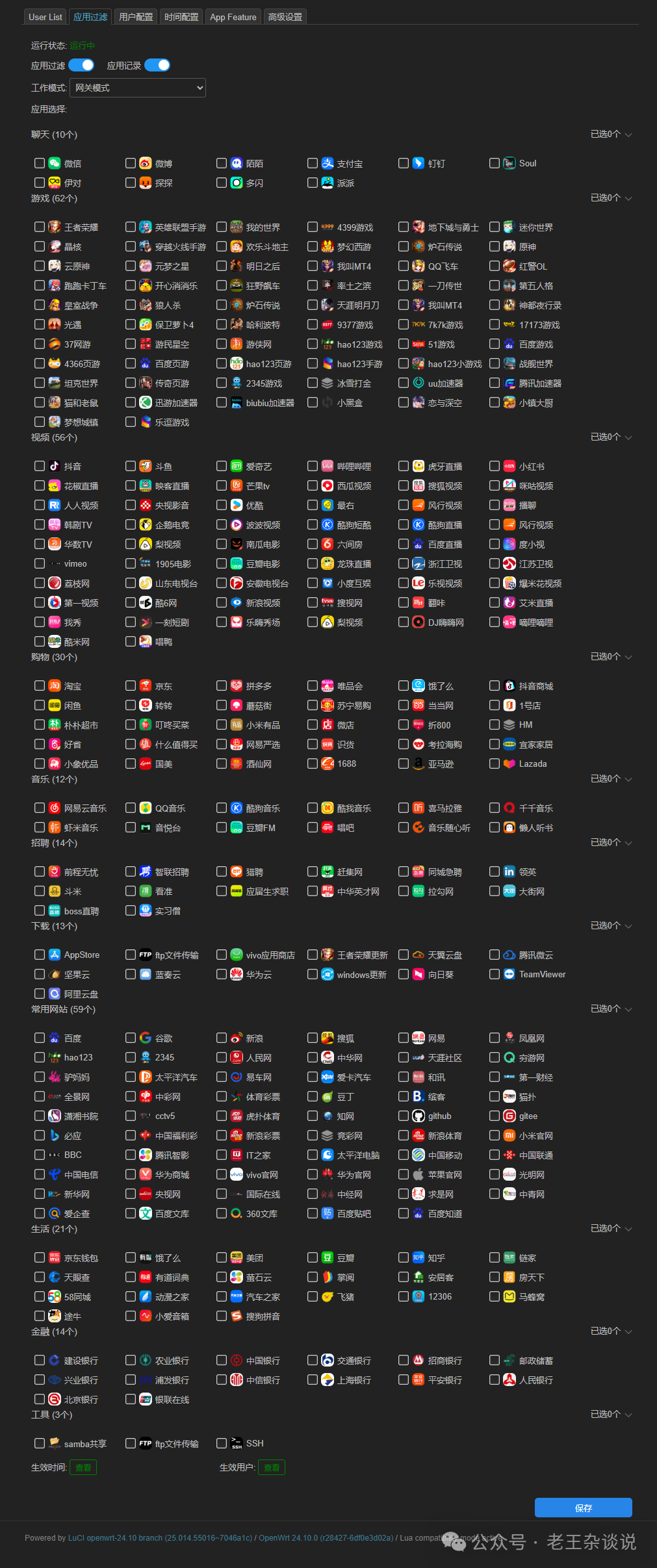
| Requirements |
- Ability to access the OpenWrt command line
- Ability to install packages via the command line
- Modified versions of Wrt may not install successfully
| Installation |
This demonstration will be based on x86_64 hardware with system version 24.10. According to the instructions, all these firmware have been successfully tested.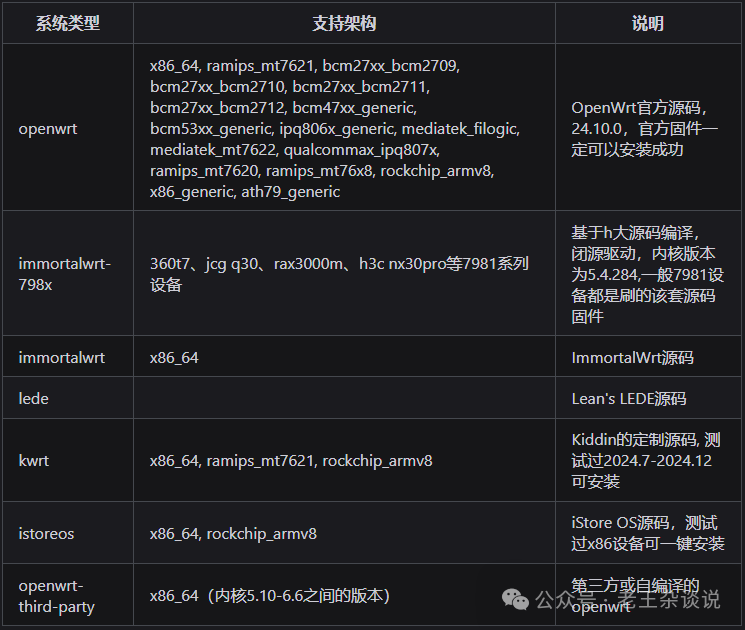 First, we enter the terminal, which can be accessed using PuTTY or SSH. Alternatively, you can install ttyd, which will provide terminal functionality directly in the OpenWrt management page.
First, we enter the terminal, which can be accessed using PuTTY or SSH. Alternatively, you can install ttyd, which will provide terminal functionality directly in the OpenWrt management page. To prevent accidental operations, we recommend staying in the /tmp directory throughout this process.
To prevent accidental operations, we recommend staying in the /tmp directory throughout this process.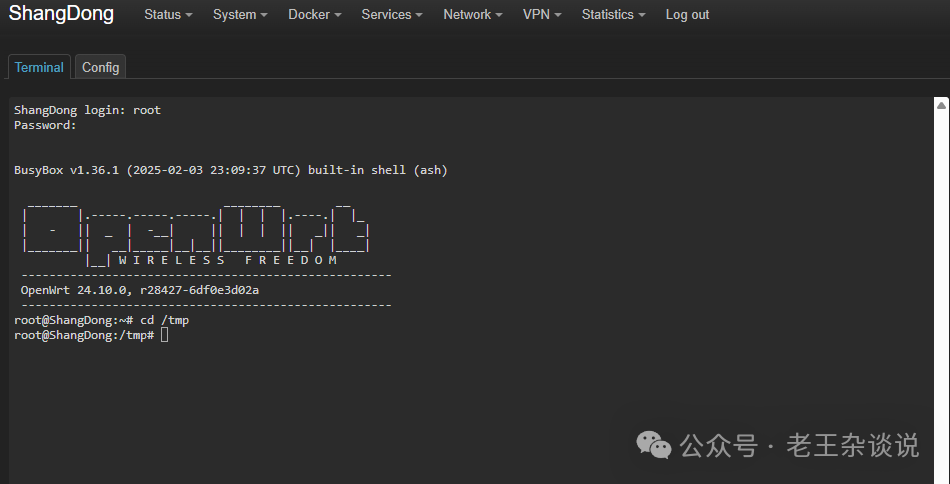 Open the following URL and select the package corresponding to your router’s kernel.
Open the following URL and select the package corresponding to your router’s kernel.
http://111.230.32.167:8086/#ipk/For this case, we will enter OpenWrt 24.10. You have two options: one is to download it directly and then upload it to your router, or you can download the package directly in the terminal. Since I am lazy, I will choose to download and extract it directly on the router.
You have two options: one is to download it directly and then upload it to your router, or you can download the package directly in the terminal. Since I am lazy, I will choose to download and extract it directly on the router.
wget http://111.230.32.167:8086/files/ipk/openwrt/x86_64/v6.1.3/openwrt-24.10.0/oaf_v6.1.3-x86_64-kernel_6.6.73.tar.gz tar -xzvf oaf_v6.1.3-x86_64-kernel_6.6.73.tar.gz cd oaf_v6.1.3-x86_64-kernel_6.6.73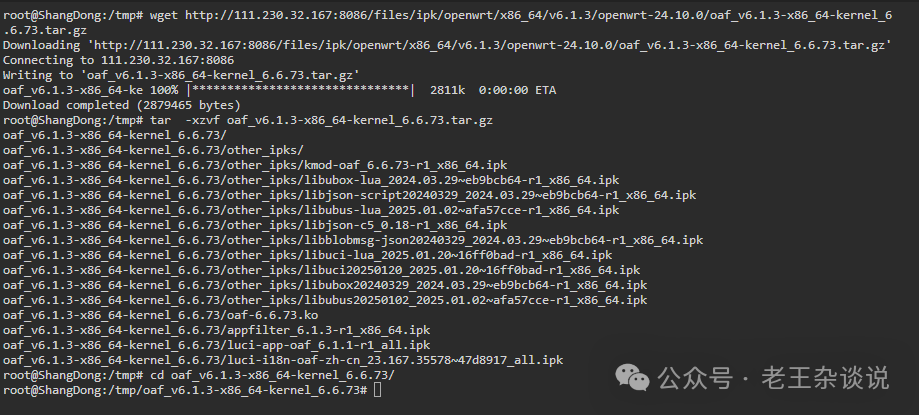 After extraction, there will be a bunch of files. Generally, you only need to install 2+1 packages. Why 2+1? The two are mandatory, and the other is the Chinese language pack, which is optional if you prefer English.
After extraction, there will be a bunch of files. Generally, you only need to install 2+1 packages. Why 2+1? The two are mandatory, and the other is the Chinese language pack, which is optional if you prefer English.
opkg install appfilter_6.1.3-r1_x86_64.ipk luci-app-oaf_6.1.1-r1_all.ipk# Optional opkg install luci-i18n-oaf-zh-cn_23.167.35578~47d8917_all.ipkNext, we need to load the driver.
insmod oaf-6.6.73.koEnsure that the driver loads without any errors before proceeding to the next step, which is to install the driver.
cp oaf-6.6.73.ko /lib/modules/oaf.ko At this point, the entire installation process is complete. You may need to log back in to see this feature in the menu.
At this point, the entire installation process is complete. You may need to log back in to see this feature in the menu. I hope this feature is useful to you.Be sure to follow me!
I hope this feature is useful to you.Be sure to follow me!